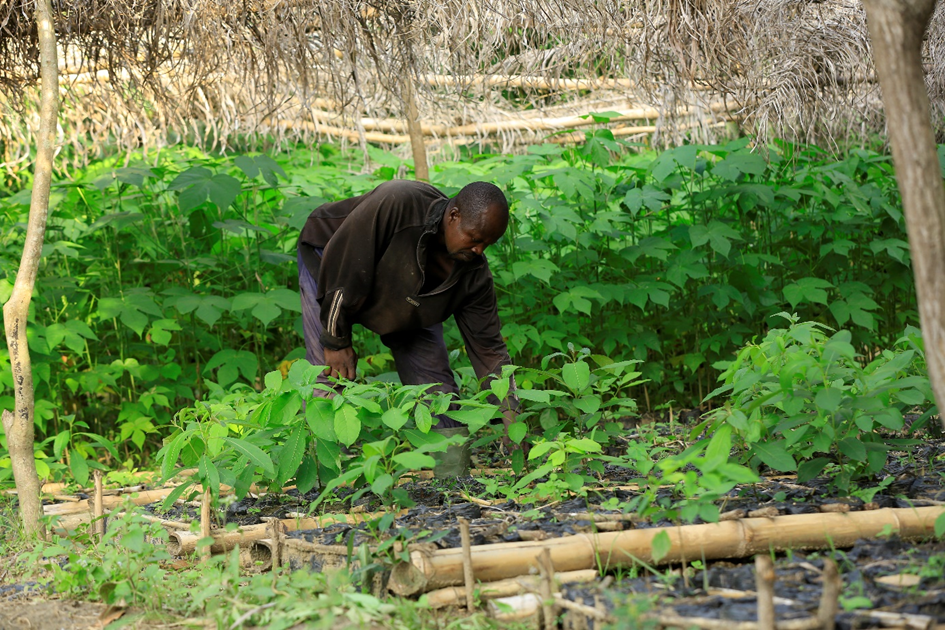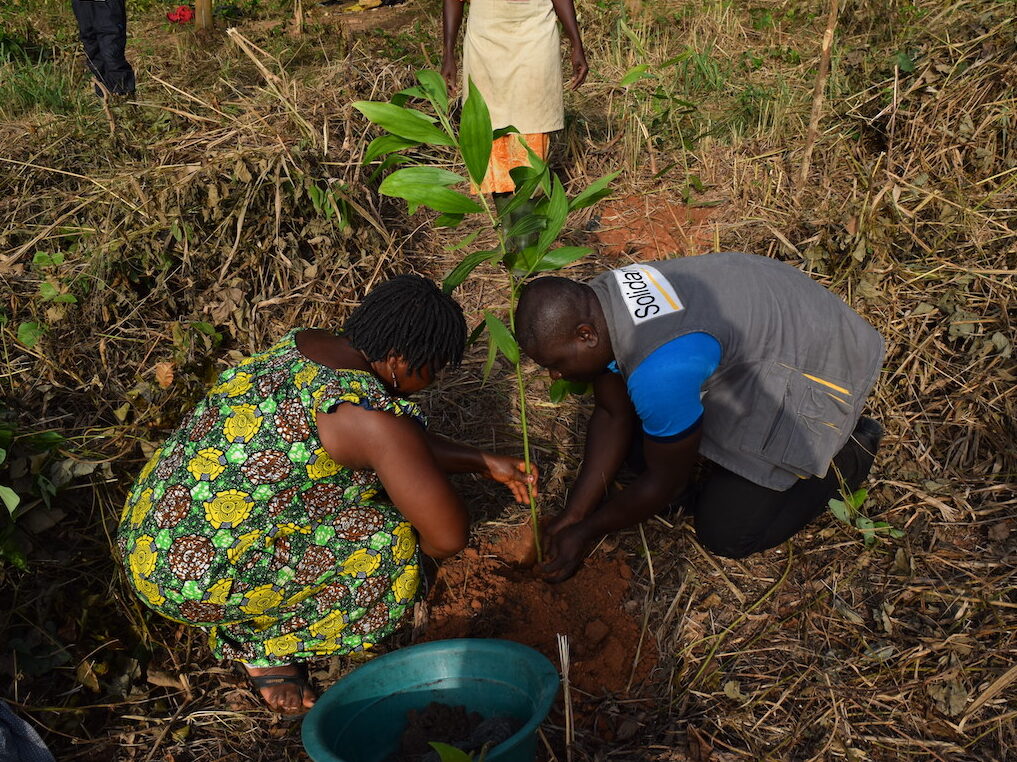It is estimated that 14 percent of deforestation in the country is caused by agriculture; cocoa farming is a major driver. In the past full sun was seen as the optimum condition for a productive farm, but farmer cooperatives are changing the narrative with a focus on agroforestry.
Implementing agroforestry in cocoa cooperatives
Solidaridad, under the Cocoa Rehabilitation and Intensification Programme (CORIP) that was implemented between 2018-2021, engaged 15 cocoa farmers’ cooperatives in different cocoa-producing areas of Côte d’Ivoire to address deforestation through agroforestry. Farmer members received awareness-building sessions on climate change issues, and training in agroforestry practices and how to manage tree nurseries with rapid-growing species like Fraké and Acacia.
I have noticed that my cocoa trees are healthier compared to other parts of the farm where trees have not been planted. I am excited about the prospects of my farm in the coming years.
Martial Kouame Yao, cocoa farmer in Méagui
“I have noticed that my cocoa trees are healthier compared to other parts of the farm where trees have not been planted. I am excited about the prospects of my farm in the coming years,” said Martial Kouame Yao, a cocoa farmer in Méagui whose farm is already experiencing some improvement after intercropping trees two years ago.
Thanks to the programme, farmer cooperatives and their farmer members are aware of the linkages between deforestation, climate change and cocoa production, and are now willing to mainstream agroforestry in their farming practices. In all, 10 tree nurseries were established and 36,000 shade tree seedlings were raised and distributed to 2,100 farmers for planting in their cocoa farms.

“We strongly believe that within the next 5 to 10 years, we will see the full impact of our efforts,” says Claude Koffi Ladji Koume, Board Chair of Le Rocher, a cocoa cooperative in Sinfra, Côte d’Ivoire.
The agroforestry scheme is one of Solidaridad’s contributions to a more resilient smallholder farmer sector. Camara Sauveur, manager of cocoa programmes in Côte d’Ivoire, says that agroforestry strengthens the cocoa production system and promotes a major tenet of good sustainability practices.
The Cocoa Rehabilitation and Intensification Production Programme (CORIP) was funded by the Embassy of the Kingdom of the Netherlands in Accra and implemented by Solidaridad in Côte d’Ivoire, Ghana, Liberia and Sierra Leone. The programme covered a broad range of interventions, including climate-smart intensification of production systems, access to finance and land tenure, service delivery for better productivity and income, and other sustainable practices.

